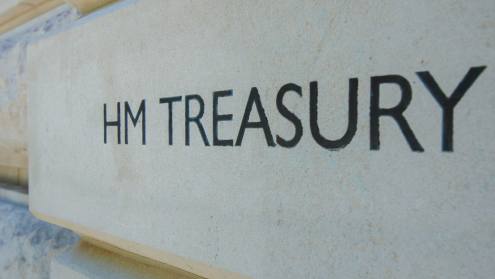
In the face of fears of a global energy crunch and complaints over high oil prices, newly discovered oil reserves tend to be celebrated. Predictably, much excitement was generated by finds in the Tupi offshore fields in Brazilian territorial waters that have been estimated at between five and eight billion barrels of oil with the potential of many times that number.
They also hold the promise of making Brazil a much bigger hitter in the highly lucrative oil production business. BP chief executive Tony Hayward has said the finds are as significant as those in the North Sea in the 1970s.
But the excitement was quickly quelled. Known as ‘pre-salt’ fields because they are buried under a layer of salt, the reserves will not be easy to access. But a bigger barrier might be the Brazilian state’s keenness to get its hands on them.
Partnership mooted
President - Inácio Lula da Silva has floated the idea of creating a new state-owned oil company that would own the reserves and develop them in partnership with the private sector, namely Petrobras.
Incorporated in 1953 as a government-monopoly refinery of imported crude oil, the publicly traded, NYSE-listed company has attracted more than 500,000 investors from Brazil and abroad. Some 60% of its equity capital is now in private hands, but the government maintains a controlling interest with 55% of voting shares.
The suggestion of creating a state-owned oil company has not gone down particularly well, either in Brazil – where even pro-government senator Francisco Dornelles called it “an assault on Petrobras’ minority shareholders” – or abroad, where many international observers who had been relieved that Mr Lula had not indulged his hard-left sympathies since taking power are now worried that their original suspicions might have been correct.
| Brazilian president Luiz Inácio Lula da Silva |
“The recent announcement by President Lula to form a government company to develop Brazil’s new offshore oil finds which were discovered by Petrobras is not considered by some investors, particularly those investing in Petrobras, to be an encouraging development,” Mark Mobius, executive chairman of Templeton Asset Management who oversees more than $34bn in emerging market equities, told the Financial Times.
It is hard to imagine that many in the Petrobras C-suite are fans of the proposal either. Petrobras’ expertise in deep-sea exploration is essential to exploit the fields fully, and the company clearly has much to gain – or lose – from the reserves and how they are owned and operated.
Government decision
But chief financial officer Almir Guilherme Barbassa insists he is not concerned. “Why should I be worried if they are giving us more reserves? Oil reserves are all that an oil company wants,” he says.
As for what the eventual arrangement will look like, “it is hard to speculate, because it all depends on the government,” he says. “But what Mr Lula has said is that they are studying to create an entity to take care of the government interest in the oil sector, and the government may decide to incorporate in Petrobras part of fields that the government may own.”
New shares
The government has said it might give its reserves in the pre-salt development to Petrobras in return for new shares in the company that have the same worth as the reserves – although Mr Barbassa takes great pains to point out that minority shareholders would have first right of refusal over this arrangement. “This is according to Brazilian corporate law, and Brazilian corporate law is very fair,” he says.
Tupi is just one part – albeit a huge chunk – of a global production ramp-up for Petrobras. “We intend to keep growing, and growing means investing,” says Mr Barbassa. “We have an investment plan of $112bn over five years for Brazil and $15bn in investments planned overseas. And we have a rapidly growing production profile: by 2015 we expect to produce 4.15 billion barrels per day (bpd).
“Today we are producing between 220,000 and 230,000 bpd outside Brazil. We are aiming to reach between 500,000 and 600,000 bpd by 2010. We acquired a refinery in Texas and another one in Okinawa,” he adds. “In 2010 we are planning to start producing in two fields in the deep waters of the Gulf of Mexico.”
Petrobras is partnering with StatoilHydro and operator Chevron in tapping the large Agbami oil field off Nigeria which started producing in July. Nigerian National Petroleum Corporation and Famfa Oil Limited are also involved as concessionaries.
Production is expected to peak in the second half of 2009, with an expected platform capacity of 250,000 bpd. Petrobras’ share will be 30,000 to 40,000 bpd.
Focus on home
Another large Nigerian oil field will come into production before the end of the year, providing Petrobras with roughly the same capacity.
But despite these developments, and having operations in 26 countries besides Brazil, Petrobras’ resource-rich home market will remain its focus – in fact, that focus looks set to grow even sharper. The company only became a net exporter in 2006, and 81% of its production still comes from the south-east of Brazil. “We are looking more towards Brazil,” says Mr Barbassa.
And the eyes of the entire global energy sector as well as emerging market investors will be looking towards Mr Lula to see how he handles Brazil’s new-found riches hidden deep beneath the salt.











